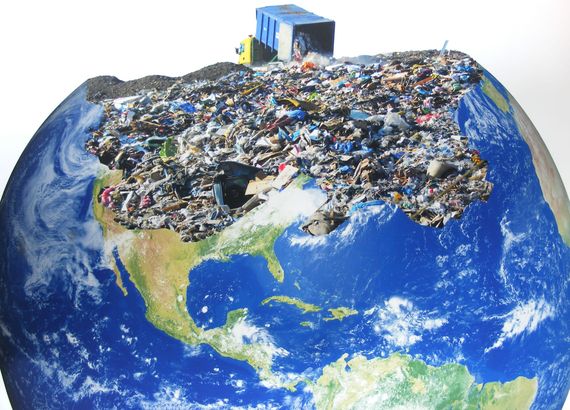- April 7, 2014
- in Green Tips
- by marcos
- 908
- 0
All the locavore haters will be dancing with joy at the results of a new study done by UC Santa Barbara. The premise of the study is that if any place can pull off a truly local food economy it should be Santa Barbara County that ranks as one of the top vegetable producing counties in the country. A professor and students set out to see how local Santa Barbara County's food system is, and to understand the carbon impacts of local food vs. non-local food. The results are surprising.
The researchers found that more than 99 percent of the produce grown in Santa Barbara County is exported, and more than 95 percent of the produce consumed in the county is imported, some of it from as far away as Chile, Argentina and New Zealand. The study also found that, surprisingly, if all produce consumed here was grown in the county, it would reduce greenhouse gas emissions less than 1 percent of total agrifood system emissions, and it would not necessarily affect nutrition.
"Most of what's grown here is shipped out," Cleveland said while standing in a tomato field about a mile from the UCSB campus. "And most of what's eaten here is shipped in. That just seems crazy."
This is the same kind of craziness we discovered during out year of local consumption. Our biggest "that just seems crazy" moment was when we were told that we couldn't get local Darigold cheddar cheese because most of it was shipped to Wisconsin.
Here's another interesting tidbit:
"I talked to a manager who was very excited about his local fruit, Santa Maria strawberries," Radka said. "But he said he got all of his strawberries from the warehouse. I asked him where the warehouse was, and he said that it's not in the county. Turns out it's in the Bay Area. So strawberries from Santa Maria are transported by truck to a warehouse in the Bay Area and then trucked back here to be sold in stores."
The authors of the study still advocate for local food systems, despite the CO2 findings, but they say that local food systems should not be the goal but the means toward the end of improved nutrition and sustainability.
Greenhouse gas savings has never been the primse motivator for my advocacy of local food systems and these findings don't come as a surprise to me. I've heard them before. I think it's important to note in this conversation that the current far-flung food system is highly dependent on cheap and abundant supplies of oil. From fertilizer, to pesticides, to diesel fuel for semi-trucks and tractors. The main reason the transport of food is only 1% of total agrifood emissions is that there is so much fuel used in the rest of the system. When oil prices spike there are a lot of food companies that would love to shave 1% of their fuel expenses off the bottomline.
Here are some of my arguments for a local food system:
1. It helps develop relationships between farmer and consumer.
2. It helps build connections between consumers and land and farming practices.
3. It educates people, especially children, about where their food comes from.
4. It promotes seasonal eating.
5. It disrupts our assumptions that we can have whatever we want, and we can have it now.
6. It connects us with the seasons.
7. It connects us with a place and the story of a place, helping us shape a hopeful future community story.
What about you? What are your reasons for supporting local food.



What makes Cleanmate trusted above other cleaning service providers? When you combine higher standards, smarter strategies and superior quality all in one package, the result is top notch.
Founded in 2010, Green Planet Cleaning quickly built a reputation as one of the leading eco-friendly providers of residential and commercial cleaning solutions. Our continuous pursuit for perfection has resulted in consistent growth each year.
Our focus is to listen to our clients, understand their needs and provide exceptional level of residential and commercial cleaning services.
